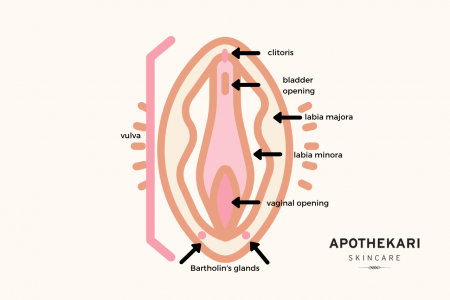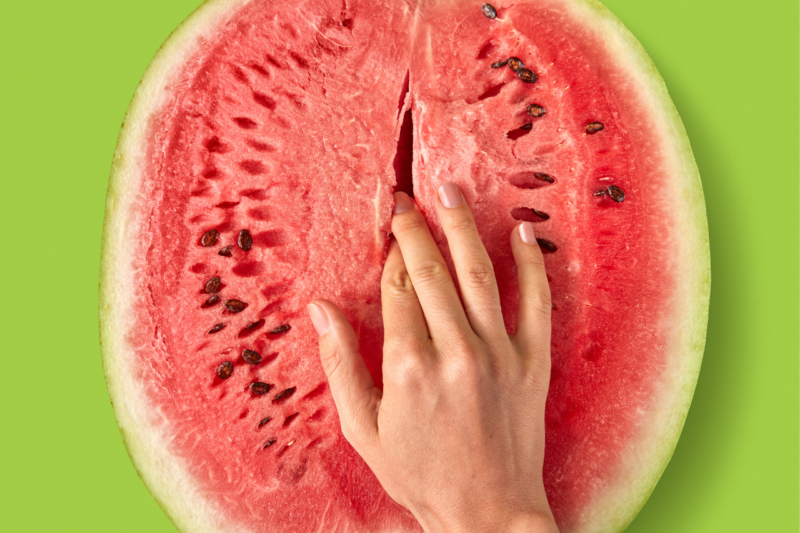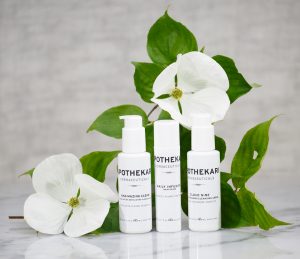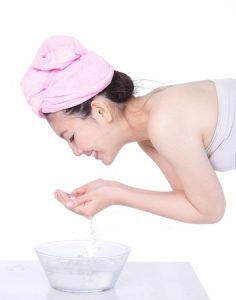Vulvar and vaginal dryness are a common, yet ‘silent’ problem because many women feel embarrassed to talk about it with their partners, friends and even doctors. It can have a really negative impact on quality of life, yet only 25% of women seek help to manage their symptoms.
What is a Natural Remedy for Dry Down There?
We’re here to change that and that’s why we’re so excited to share news about More Than Lip Service. You moisturize the rest of your body so why not your vulva and vagina? Our moisturizer helps to treat the symptoms associated with vulvar & vaginal dryness, allowing you to embrace life again.
Made with a combination of hyaluronic acid (which your body produces naturally) plus vitamin E and other beneficial ingredients, More Than Lip Service gives you fast, long-lasting & hormone-free relief from the burning, itching & pain associated with vaginal atrophy, vulvar and vaginal dryness. Unlike those other lubricants that just slip right out, ours not only immediately alleviates dryness symptoms but also lasts so long, you may not even need to use it every day.
Why Am I Dry Down There All of a Sudden?
Over half of women aged between 51 and 60 experience vulvar & vaginal dryness, leading to pain, irritation and burning. While it’s more common in older women, younger women aren’t immune. Around 17% of women aged 18-50 experience issues, even before menopause.
The hormonal changes associated with aging—in general, a decline in estrogen levels—is the main cause, but feminine sprays and harsh soaps, swimming pool & hot tub chemicals, detergents, and some medications can also lead to vaginal dryness. It may also be problematic during sexual intercourse, resulting in pain along with intimacy issues.

What Causes Vaginal Dryness?
A normal, healthy vagina:
- Is kept supple and moist with natural lubrication produced by glands at the neck of the womb (the cervix). This moisture makes its way slowly down through the vagina, keeping it clean and removing dead cells. The moisture is slightly acidic, helping to keep the area, including the vulva and the labia healthy, preventing infections like thrush. Most women may notice a slight white vaginal discharge – this is perfectly normal.
- The Bartholin’s glands (two glands at the entrance of the vagina) produce extra moisture to aid sexual intercourse when a woman is aroused. However, a quarter of women aged 50-59 experience vaginal dryness problems during sex and 16% experience pain.
- In addition to the natural lubrication that makes its way down through the vagina, there’s also a thin layer of moisture that coats the walls of the vagina. This moisture helps sperm travel and survive in for sexual reproduction. It also helps to reduce friction during sexual intercourse.
As a woman gets older, a decline in estrogen production can cause the vaginal walls to thin, resulting in fewer cells that secrete moisture. Apart from age, vulvar and/or vaginal dryness may be associated with:
- Breastfeeding
- Cigarette smoking
- Depression
- Excessive stress
- Immune system disorders, such as Sjögren syndrome
- Childbirth
- Rigorous exercise
- Some cancer treatments, such as radiation to the pelvis, hormone therapy, or chemotherapy
- Surgical removal of the ovaries
- Some medications, including douching, as well as some creams and lotions that are applied to the vaginal area.
Can Dehydration Cause Dryness Down There?
If you’re not drinking enough water, then your skin—anywhere on your body—is prone to dryness.
Dehydration can take a on your vaginal health, leaving the skin feeling itchy and dry. It can also throw off the pH balance, possibly contributing to conditions including yeast infections.
Make sure that you’re drinking enough water (most experts recommend somewhere between 6-10, 8 oz glasses a day. Tea, coffee, fruits and vegetables all count towards this and you may need more depending on your level of activity and personal needs.
What are the Symptoms of Vaginal Dryness? How Long Does Vaginal Dryness Last?
Vulvar & vaginal dryness cause discomfort in the vaginal and pelvic regions along including:
- Burning
- Loss of interest in sex
- Painful sexual intercourse
- Light bleeding following intercourse
- Soreness
- Urinary tract infections (UTIs) that don’t go away or that reoccur
- Vaginal itching or stinging
Beyond painful intercourse, untreated vaginal dryness can cause sores or cracking in the vagina’s tissues.
See your doctor if you experience the following:
- Vaginal dryness that lasts for more than a few weeks and and that isn’t fixable with over the counter solutions (see below)
- Vaginal dryness is affecting your daily life
- You experience unusual discharge or bleeding from your vagina
- You have bleeding after sex or in between your periods
If severe vaginal bleeding occurs, it’s important to seek immediate medical attention.
How Do You Get Rid of Dryness Down There?
Although it can throw havoc with your day to day activities, vulvar & vaginal dryness aren’t life threatening. Thankfully, treatments are available.
1. What is the best lube for menopause?
Similar to natural lubrication, lubricants provide temporary relief from dryness and discomfort. Lubricants may be used at any time and aren’t just reserved for perimenopause or menopause.
They should be applied to the area around the vulva (lips) and vagina just before sexual intercourse.
2. What is good for vaginal dryness? (Hint: Moisturizers!)
Longer lasting than lubricants, moisturizers like More Than Lip Service are designed to be used two to three times a week. They may be used externally or used internally and their effect lasts for days.
They’re a great option for women who can’t—or don’t want to—use hormonal options.
3. Do estrogen pills help with dryness?
Estrogen pills are a hormonal option available by prescription to help manage vaginal dryness. Creams, gels, patches and rings are also available to give you a range of products to choose from.
Supplementing with estrogen can help to manage a range of perimenopausal and menopausal symptoms that women may encounter, including not only, vaginal dryness, but also hot flashes and brain fog. If you feel that you’d benefit from going this route, check in with your physician who’ll be able to help you navigate the choices to find one that works for you.
If your main concern though, is vaginal dryness, studies have shown that vaginal moisturizers made with hyaluronic acid and vitamin E (like More Than Lip Service) are comparable in efficacy to hormonal treatments and without the risk of side effects. (1,2,3)
Check with your health care provider if you aren’t sure about your options.
(1) Jokar A, Davari T, Asadi N, Ahmadi F, Foruhari S. Comparison of the Hyaluronic Acid Vaginal Cream and Conjugated Estrogen Used in Treatment of Vaginal Atrophy of Menopause Women: A Randomized Controlled Clinical Trial. Int J Community Based Nurs Midwifery. 2016 Jan;4(1):69-78. PMID: 26793732; PMCID: PMC4709811.
(2) Stute, Petra. Is vaginal hyaluronic acid as effective as vaginal estriol for vaginal dryness relief? Multicenter Study Arch Gynecol Obstet . 2013 Dec;288(6):1199-201.
(3) Chen J, Geng L, Song X, Li H, Giordan N, Liao Q. Evaluation of the efficacy and safety of hyaluronic acid vaginal gel to ease vaginal dryness: a multicenter, randomized, controlled, open-label, parallel-group, clinical trial. J Sex Med. 2013 Jun;10(6):1575-84. doi: 10.1111/jsm.12125. Epub 2013 Apr 9. PMID: 23574713.







